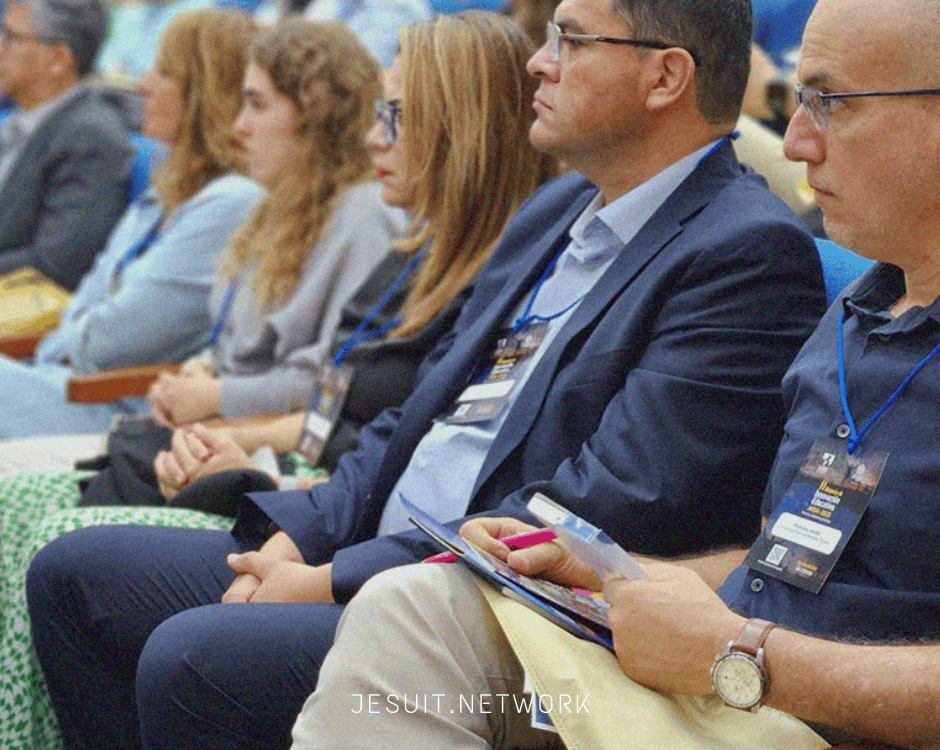This website uses cookies so that we can provide you with the best user experience possible. Cookie information is stored in your browser and performs functions such as recognising you when you return to our website and helping our team to understand which sections of the website you find most interesting and useful.
Transforming our World through Network Research: The Iñigo de Loyola Initiative
The Iñigo de Loyola Initiative (IIL) arose in response to a need in a specific local context in the Basque Country, Spain, but open to collaboration and globality. With this breadth of vision, IIL has evolved into a project that brings together 17 American and Spanish universities in collaboration for the development of transformative research.
Orkestra-Basque Institute of Competitiveness is an initiative of the University of Deusto, through Deusto Foundation. It was created in 2006 for the study of competitiveness and regional development with thee specific goals: (i) to contribute to improve Basque Country competitiveness, (ii) to promote the improvement of citizen’s wellbeing and, (iii) to create knowledge on regional competitiveness.
One of Orkestra’s distinctive traits is its approach to research. Through transformative research (action research), Orkestra links global and local knowledge to foster innovative solutions to the challenges of competitiveness faced by the Basque Country. It does so hand in hand with the territorial actors directly involved in those challenges, thereby co-generating actionable knowledge useful for their decision making. This knowledge is systematized in the form of scientific articles that contribute to the academic discussion on regional competitiveness as well as to the practical implementation of similar measures in other territories.
Since its inception, Orkestra has been an example of success [1] in public and private cooperation and it therefore collaborates naturally with a large number of networks, businesses, governments and institutions on numerous projects. So, apart from being an agent of change in the Basque Country, it has become an international reference in the analysis of regional competitiveness in a global environment.
On May 2018, Orkestra hosted a workshop with representatives of three Latin American universities based in Colombia and Uruguay who had done their doctoral studies at Deusto University. The result of the workshop was the Iñigo de Loyola Initiative (IIL in Spanish), which Orkestra presented at the World Summit of Jesuit Universities held in Deusto University’s Bilbao campus two months later. The IIL has two main objectives:
- (1) To develop a common understanding of competitiveness. Not as an end in itself, but as a mean to achieve sustainable economic and social development.
- (2) To foster transformative research, that is, research that aims at changing competitiveness in practice, in all the territories that host universities entrusted to the Society of Jesus.
Three years later, the IIL has grown into a network of 17 universities based in North, Central and South America, and in Spain. Participants have been meeting monthly since September 2018, in a virtual space provided by the Association of Universities Entrusted to the Society of Jesus in Latin America (AUSJAL) to work on the conceptual and practical aims set out above.
A workshop was planned for September 2020 to meet and discuss lessons and recommendations for a report that would be published early in 2021 and to identify new steps for the IIL. However, the meeting was called off due to the onset of the Covid pandemic and the network continued meeting virtually.
The report titled Competitividad al servicio del bienestar inclusivo y sostenible, coordinated by Orkestra researchers Mari Jose Aranguren and Patricia Canto, and peer-reviewed by the Institute for Development ETEA of the University of Loyola (Seville, Spain), was published in January 2021. The report includes forewords by Dr. Luis Arriaga, S.J., President of AUSJAL and by Dr. José María Guibert, S.J., Rector of Deusto University. Both of them participated in a webinar organized to present the report on June 30, 2021.
The work currently being developed by the IIL continues along its two main objectives. On the one hand, a conceptual competitiveness-related reflection is taking place, this time focused on the challenges of dignified employment in the aftermath of the pandemic. Small groups are working in parallel to address the informal sector, small and medium firms and the circular economy, among other. This coming September, the groups will start sharing their findings in the monthly meetings set up for discussion and feedback. The aim is to publish a second report in 2022.
On the other hand, participants are presenting transformative research projects currently being developed in their universities. The focus is on lessons learned and challenges identified, in order to inspire other universities working to develop their own transformative research projects.
Participating universities
- Instituto de Desarrollo – Fundación ETEA (Universidad de Loyola, España)
- Orkestra-Instituto Vasco de Competitividad (Universidad de Deusto, España)
- Universidad Antonio Ruiz de Montoya (Perú)
- Universidad Católica de Córdoba (Argentina)
- Universidad Católica de Salta-Magis (Argentina)
- Universidad Católica de Uruguay (Uruguay)
- Universidad Centroamericana José Simeón Cañas (El Salvador)
- Universidad de Monterrey (México)
- Universidad de Vale do Rio dos Sinos (Brasil)
- Universidad del Pacífico (Perú)
- Universidad del Salvador (Argentina)
- Universidad Iberoamericana Ciudad de México (México)
- Universidad Iberoamericana de Puebla (México)
- Universidad Javeriana de Bogotá (Colombia)
- Universidad Javeriana de Cali (Colombia)
- Universidad Jesuita de Guadalajara-ITESO (México)
- Universidad Rafael Landívar (Guatemala)
Considering a shared commitment to social transformation Orkestra would like to collaborate with other Jesuit universities on building capabilities for transformative research. Please also note that the IIL is open to other universities and research institutes wishing to reflect on competitiveness as means to achieve sustainable and inclusive wellbeing through transformative research. Mari-Jose Aranguren, director general of Orkestra would be happy to provide more information and to discuss opportunities for collaboration: [email protected].
[1] See Porter, M., Ketels, C. and Valdaliso, J. M. (2016b). Orkestra-Basque Institute of Competitiveness. Boston, Harvard Business School Case, 9-716-456.





